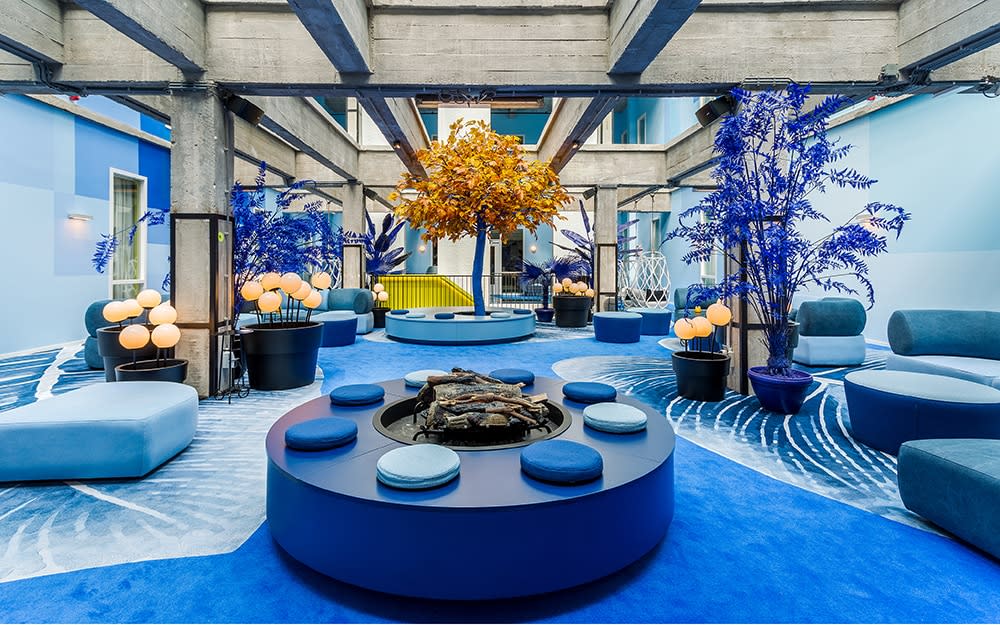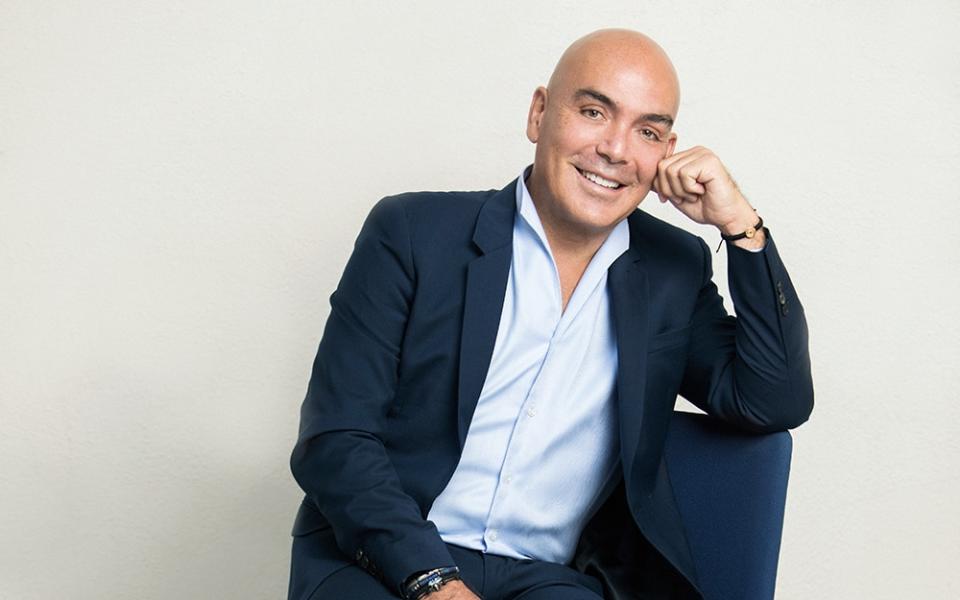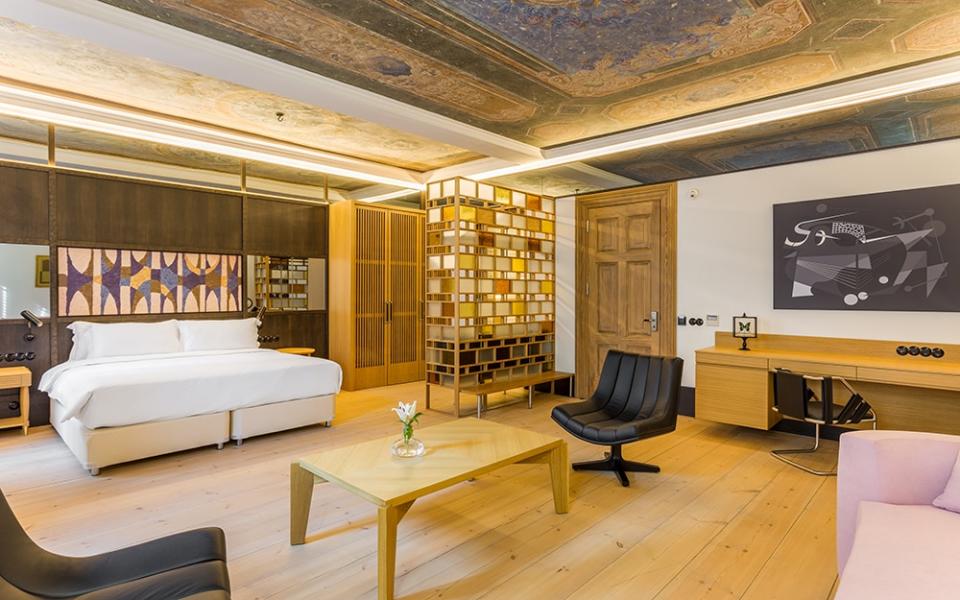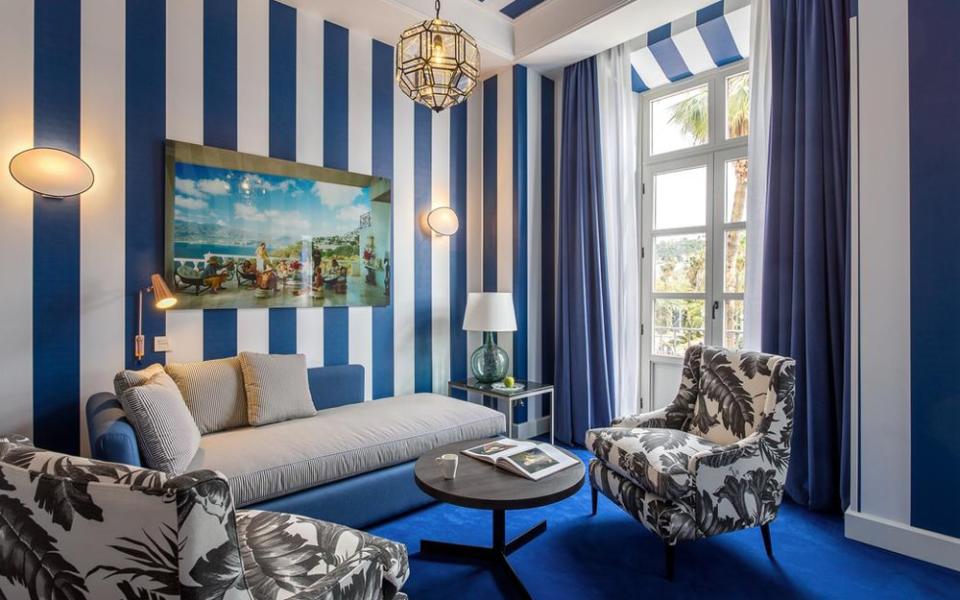What it's like for a hotel that hosted healthcare staff during lockdown to return to 'normal'

The Room Mate hotel group was one of the first to offer up its bedrooms to those in need when the pandemic took its hold across Europe in March of this year. Now, as lockdown restrictions are relaxed across Spain, France and more, its president and founder Kike Sarasola feels confident that they are better prepared than they could have expected to welcome back tourists to the new normal.
Sarasola had been in Venice at the site of a forthcoming hotel when the city locked down; and so he was hardly surprised when the domino effect set in, and hotels across the world had to close their doors for the foreseeable future. Soon after, his director of communications called him and said, “Kike, the minister of health [in Spain, and where the hotel group was founded] has said that he might need beds, because this pandemic might grow out of hand.” He was also the one who said, “Kike, why don’t we propose to let them use our hotels?”
Sarasola thought it was a brilliant idea, and acted fast. He told me, “We went to the authorities and I said listen, we want to help, you said you needed beds. Here are my six hotels in Madrid. Do with them what you want.”
The initial plan had been to use the hotels for extra hospital beds, but it became clear that because of their location (in city centres as opposed to next to hospitals) they were better suited to housing healthcare workers that didn’t want to go home at the end of a shift, in order to protect their families. Within a week, all six hotels were full with either healthcare workers or vulnerable elderly people; and before long other hotels in the group in France, Italy and the United States had followed suit.
Sarasola started out his career as an Olympic horseback rider, and opened Room Mate when he retired as an athlete. He had been spending 300 days a year away from home and felt like it was still hard to find somewhere to stay that was both central and affordable, and also carried a certain amount of style. It goes without saying that when he set out with his husband to open one 30-room hotel, he may not have expected to grow to 40 hotels with 30,000 rooms, let alone be hosting key workers during a worldwide pandemic. The last part was certainly not part of the plan.

And yet, Sarasola shared of the past few months: “My team have all said this has been the most beautiful experience we have had in our lives, to be able to help and donate – because we donated it for free. No government, no city has paid a single penny. I’ve paid the salaries, the light, the water.” Later on other companies in Spain offered to contribute. For example, one paid for the cleaning staff, one paid for the electricity. He added, “All the solidarity that was brought around it was absolutely incredible.”
It wasn’t necessarily obvious how to proceed from the get-go though: “At the beginning, I think everybody was a bit in the air. Do we need to put masks on? Do we need to wear gloves? This has been new for everybody.”
That said, having kept so many hotels open throughout the pandemic to serve some of the most vulnerable has meant that Room Mate hotels have been able to implement and test protocols for more than three months. The finalised protocol that is now in place to welcome travellers is called ‘Stay Safe, Stay Well.’ Room Mate Waldorf Towers in Miami, Room Mate Alain in Paris, and Room Mate Gorka in San Sebastian were the first to reopen in early June, and over the past month a number of others have made the transition back to their usual type of hospitality.
Sarasola said: “Now the tourism sector is back up and running, we will continue to apply these strict and comprehensive protocols across all our hotels. It is our responsibility to restore peace of mind and confidence in tourism.”

Measure go above and beyond, including mats with a water and bleach solution at hotel entrances to ensure disinfection of shoe soles and suitcase wheels; temperature controls on all people entering the hotels; reception areas fitted with methacrylate screens and safety distance markers on the floor; protective masks and gloves provided for staff and guests; and many more precautions. Protective screens will be designed by interior designers such as Tomás Alía and Teresa Sapey.
Sarasola added, “When people say, oh my god we have to prepare our hotels for this new normality – I have been doing it for the last three months. My hotels were 100 per cent full [...] And it’s perfectly feasible, we can live with it perfectly. And at the end of the day it is perfectly safe to travel if we have the safety measures. We have already proved it: we donated almost 1,200 rooms [and] four apartment buildings.”
He does wish though that there would be more unity across the European community in terms of how they welcome back travellers. As it stands, each country has its own protocols and not all are compulsory. “That is not good for the mental mind of the traveller - I think we should have the same protocols and make them compulsory,” Sarasola told me. Another sticking point is the fact that a lot of the advice surrounding travel has been inconsistent, and the fact that despite the help many hotels have given during the crisis, the government has not given enough help back to the industry.
“I’m still missing a president that says come to my country to travel, it’s safe. I haven’t heard any president say this,” he explained. “I’m a very pro-industry advocate, so I’m a bit of a fighter if you want, too much sometimes, and I get into trouble, but I believe our industry is the motor of the economy and especially in Spain it is for jobs.” And then, “The goal of the industry is .. once we say you can travel, trust us we can travel. We should be worried, but we should not be alarmed. We have to give confidence to the people.”

Above all though, what resonates from Sarasola is how honored he is to have to be able to do something during the pandemic to help. He shares many anecdotes of things his staff did throughout, from sharing positive messages on the room mirrors to sourcing a birthday cake to listening to those in tears at what they had seen in the hospital that day.
The added bonus that they are better prepared to get back to what they know best is more of an afterthought. “We are so happy and so proud to have helped, and we will do it a thousand times,” he concluded.


